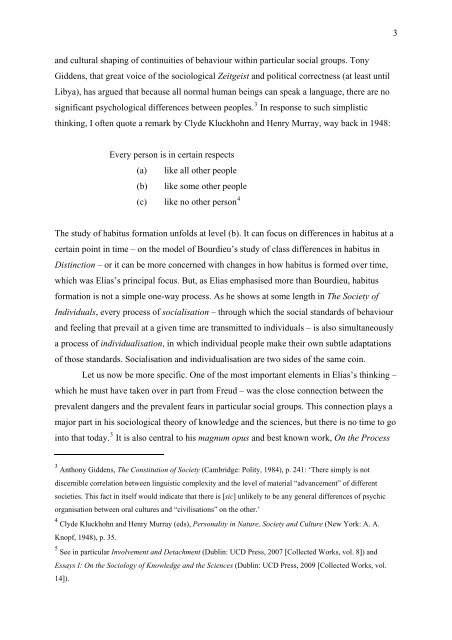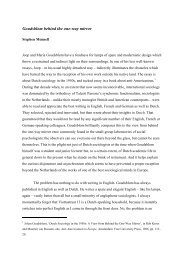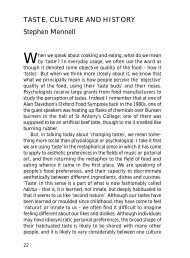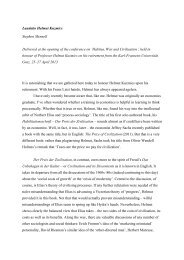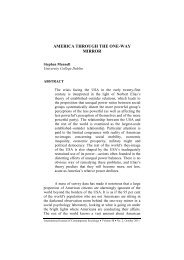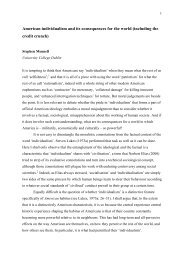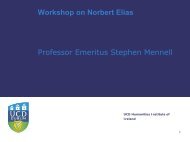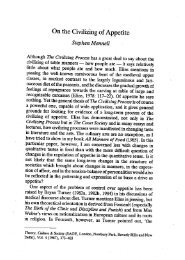paper - Stephen Mennell
paper - Stephen Mennell
paper - Stephen Mennell
You also want an ePaper? Increase the reach of your titles
YUMPU automatically turns print PDFs into web optimized ePapers that Google loves.
3<br />
and cultural shaping of continuities of behaviour within particular social groups. Tony<br />
Giddens, that great voice of the sociological Zeitgeist and political correctness (at least until<br />
Libya), has argued that because all normal human beings can speak a language, there are no<br />
significant psychological differences between peoples. 3 In response to such simplistic<br />
thinking, I often quote a remark by Clyde Kluckhohn and Henry Murray, way back in 1948:<br />
Every person is in certain respects<br />
(a) like all other people<br />
(b) like some other people<br />
(c) like no other person 4<br />
The study of habitus formation unfolds at level (b). It can focus on differences in habitus at a<br />
certain point in time – on the model of Bourdieu’s study of class differences in habitus in<br />
Distinction – or it can be more concerned with changes in how habitus is formed over time,<br />
which was Elias’s principal focus. But, as Elias emphasised more than Bourdieu, habitus<br />
formation is not a simple one-way process. As he shows at some length in The Society of<br />
Individuals, every process of socialisation – through which the social standards of behaviour<br />
and feeling that prevail at a given time are transmitted to individuals – is also simultaneously<br />
a process of individualisation, in which individual people make their own subtle adaptations<br />
of those standards. Socialisation and individualisation are two sides of the same coin.<br />
Let us now be more specific. One of the most important elements in Elias’s thinking –<br />
which he must have taken over in part from Freud – was the close connection between the<br />
prevalent dangers and the prevalent fears in particular social groups. This connection plays a<br />
major part in his sociological theory of knowledge and the sciences, but there is no time to go<br />
into that today. 5 It is also central to his magnum opus and best known work, On the Process<br />
3 Anthony Giddens, The Constitution of Society (Cambridge: Polity, 1984), p. 241: ‘There simply is not<br />
discernible correlation between linguistic complexity and the level of material “advancement” of different<br />
societies. This fact in itself would indicate that there is [sic] unlikely to be any general differences of psychic<br />
organisation between oral cultures and “civilisations” on the other.’<br />
4 Clyde Kluckhohn and Henry Murray (eds), Personality in Nature, Society and Culture (New York: A. A.<br />
Knopf, 1948), p. 35.<br />
5 See in particular Involvement and Detachment (Dublin: UCD Press, 2007 [Collected Works, vol. 8]) and<br />
Essays I: On the Sociology of Knowledge and the Sciences (Dublin: UCD Press, 2009 [Collected Works, vol.<br />
14]).


